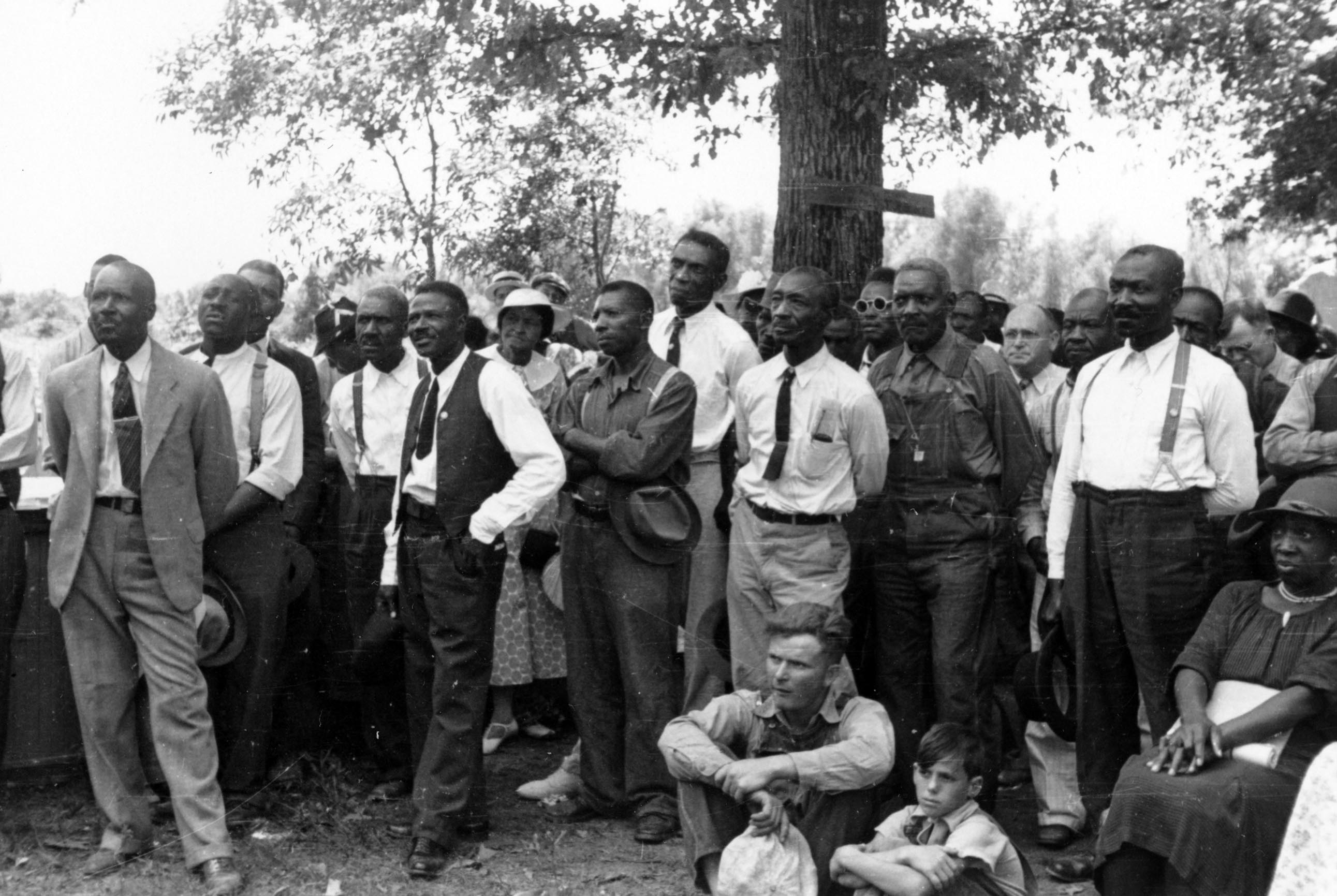One of the highlights of the 93rd National Council for the Social Studies (NCSS) Conference in St. Louis was the “Civil Rights in the 21st Century: Oh Freedom After While Colloquium” at the Missouri History Museum.
The event featured a showing of the powerful documentary Oh Freedom After While, chronicling the January 1939 sharecropper protest in the Missouri Bootheel. More than 1,000 black and white sharecroppers and their families set up camps along two major Missouri highways to publicize their desperate working conditions. Led by African American union activist Owen Whitfield, this was one of the first examples of integrated resistance against economic injustice predating the modern civil rights movement.
While the state and federal governments and international aid organizations tried their best to marginalize the protesters from public view, a group of local students from Lincoln University (a historically black college) raised funds to help the sharecroppers buy their own land. There they established a successful community known as Cropperville.

 Image stills from the film “Oh Freedom After While.”
Image stills from the film “Oh Freedom After While.”
Attendees then had the honor of meeting the film co-producer Lynn Rubright and the daughter of the 1939 protest organizer Owen Whitfield, Shirley Whitfield Farmer. As a young child, Shirley was a participant in the protest and grew up in Cropperville. She eloquently explained how the film teaches about economic injustices and the power of community activism to create a more compassionate society.
In addition to the memorable event, Ted Green of Webster University provided a tour of historic downtown St. Louis en route to the event venue and all attendees received a free copy of the film.
The event was sponsored by Webster University’s School of Education and The Beatrice and David Kornblum Institute for Teaching Excellence.
The Zinn Education Project has a lesson on the Southern Tenant Farmers’ Union that can be used with the film.







Twitter
Google plus
LinkedIn